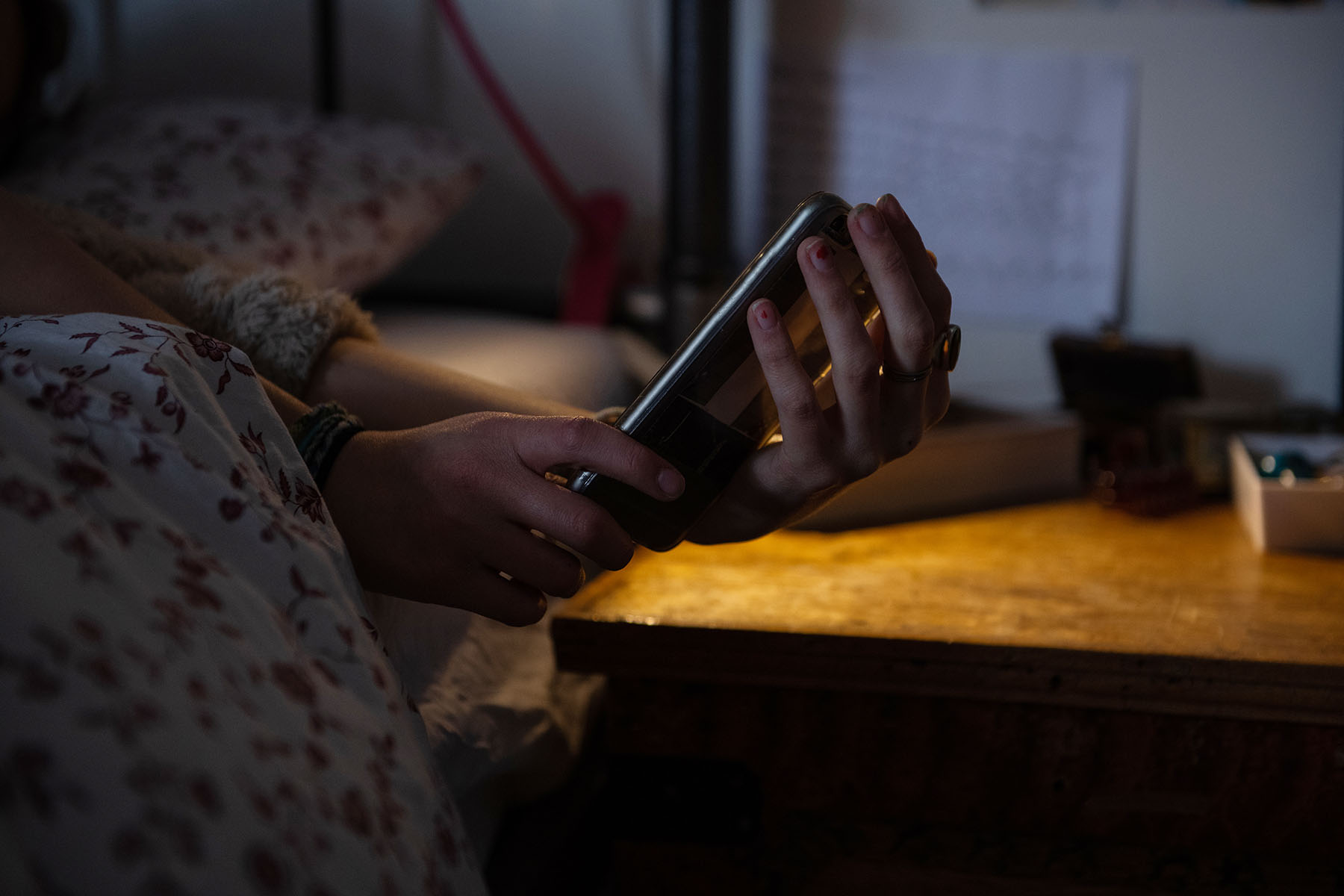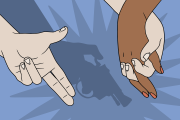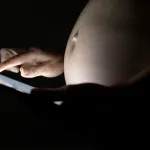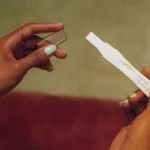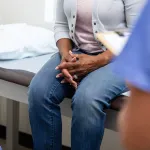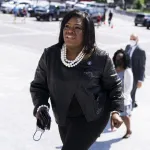The country’s central domestic violence hotline received a major spike in calls from teens about reproductive coercion in the year following the overturn of Roe v. Wade.
New data from the National Domestic Violence Hotline (NVDH), also known as The Hotline, shows that 24 13- to 17-year-olds called about reproductive coercion in the year before June 2022; in the next year, that number rose to 44.
The volume of calls is not huge, but The Hotline’s operators say they show the impact of the end of a federal right to abortion — and that they may be just the tip of the iceberg, since stigma, access to a computer or phone, and safety concerns impact survivors’ ability to contact The Hotline.
Marium Durrani, the vice president of policy at the National Domestic Violence Hotline, told The 19th that these new data points about young people and reproductive coercion underscore not only the prevalence of teen dating violence, but of the real-world reverberations that the Dobbs ruling has had on intimate partner violence.
“We now have these younger callers calling us in particular about reproductive coercion — and then what they’re citing are additional barriers to services and safety” when it comes to accessing reproductive health care, Durrani said, from abortion to contraception and STI testing.
-
Read Next:
Reproductive coercion can take many forms, especially among teens. Reproductive coercion is a term used to describe any situation in which one partner is exerting power over the other in a way that impacts their reproductive health, such as forcing someone to engage in sexual activity, refusing to use contraception or interfering with a partner’s contraception usage, or restricting a partner from seeing a reproductive health care provider.
Calls to The Hotline about reproductive coercion increased by 98 percent post-Dobbs. Rates jumped among young adults across the board, new data from The Hotline shows.
“Without having travel funds or funding at all, without support systems that can help them, with parents who may have concerns — this is a really challenging thing for young people to have to navigate these systemic hurdles that the shifting landscape has really offered to us,” Durrani said. “Young people are really desperately impacted and we’re seeing their lives now on the lines — and it’s really, really frustrating.”
The situation is further complicated, Durrani said, by a dominant public perception that domestic violence is something that only impacts adults. Younger survivors of intimate partner violence are not only up against whatever state laws in regards to abortion access exist in their hometowns, but also needing to convince adults that they could be struggling in a toxic relationship and in critical need of help.
And post-Dobbs and the elimination of the constitutional right to abortion access, abusers, even young ones, now have more tools for abuse.
Durrani said that many of the calls by young people to The Hotline are from callers who are pregnant and don’t have access to reproductive health care, in places where abortion may be banned or not widely available. These young callers are often unable to travel out of state and now find themselves facing the added pressure of being trapped in an abusive relationship.
“Young people may not know what the healthy or unhealthy dynamics of a relationship are,” Durrani said, “And then we’re adding another layer or reproductive coercion or forced pregnancy on them. Those are a lot of additional challenges.”
And given the legislative landscape and legal stakes that now exist in many states post-Dobbs, that dynamic is only exacerbated. “A lot of these students who live in places where abortion is restricted — I hear their stories and they keep me up at night.”
Emma Grasso Levine is the Title IX policy and program manager at Advocates for Youth and Know Your IX, where she focuses on the dynamics that contribute to and reinforce teen dating violence. Levine explained that secondary school sex ed classes often fail to empower young people with information about their bodies and what healthy relationships can look like. “That in and of itself can be a barrier for specifically teens to even actually identify if they have a gut instinct that something isn’t right” in a relationship, Levine said.
“There are so many barriers for teens already in being minors. Reporting violence can trigger a police report, and that may not be something they want to engage with. There’s also so much stigma around teen sexuality and exploring sexuality.”
-
Read Next:
They also noted the ways that teens are acutely aware of how the culture at large talks about dating violence. Levine specifically mentioned the continuing impact of the Johnny Depp-Amber Heard trial and the amount of content created around that on TikTok. “For folks more likely to engage in abusive behaviors, observing that was receiving the message of, ‘Oh, that must be OK to engage that way.”
She said that in a cultural climate that feels oriented against survivors of abuse and without curriculum in schools to counteract disinformation, teens are increasingly finding themselves in unhealthy and abusive relationships. “There’s a real responsibility here on schools and on legislators to put the structures in place that ensure that we’re not allowing reproductive coercion to continue in the climate that we’re in.”
Anecdotally, Durrani said, calls by teens to The Hotline about reproductive coercion come most frequently from Black, Indigenous and other young people of color, as well as young people with disabilities and queer and trans teens. “A young person who might be experiencing reproductive coercion might also experience family violence, housing instability, online abuse and harassment, and barriers to access for reproductive health care generally.
“There’s just a proliferation of a lot of multiple, intersecting pieces of violence, and we’re seeing that more and more with marginalized identities as they’re really suffering with a lot of intersections that someone else calling may not be experiencing,” Durrani said.
The jump in numbers from young people calling The Hotline about reproductive coercion only begins to hint at how prevalent teen dating violence is, Durrani added — and the need for young people to have the tools and resources they need to make healthy decisions for themselves, their bodies, and their relationships. “The more that we take these tools away from them — like what we have seen post-Dobbs — then the less tools they have to lead a happy, healthy life. If they’ve never had any education about health relationships, they may engage in a toxic or abusive relationship and then it’s really, really hard to get out of that.”
This situation only becomes all the more heightened when people lose access to decision-making over their reproductive health, actively facing the real or implicit threat of sexually transmitted infections, lack of access to birth control, forced pregnancy, or the intervention of law enforcement into their lives because of their desire to control their reproductive futures.
“Now we’re seeing abusive partners who can threaten someone’s livelihood and their families with a stack of civil and criminal penalties and use that as a way to ruin their life, where this specific tool just didn’t exist before Dobbs,” Durrani said, stressing that this reality very much applies to young people too, as evidenced in the spike in calls to The Hotline. “Before Dobbs, people may not have had the option to get an abortion because of social stigma or community impact, but now they’re facing potential entanglements with law enforcement, with prosecutors. That wasn’t even an option before Dobbs. It is the most horrifying tool abusers can use and we are now seeing it a lot.”
February is National Teen Dating Violence Awareness Month. If you or anyone you know is experiencing teen dating violence or any other form of domestic abuse, you can contact the National Domestic Violence Hotline through their website, via phone at 1.800.799.SAFE (7233) or by texting the word “START” to 88788.
